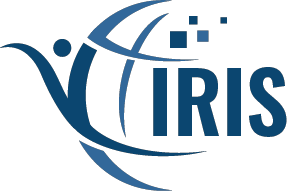Program
There are other boat options to the island, but we recommend sticking to these ones. Have a look at the "Venue" page for more detailed information on how to get to the conference location!
The conference happens to coincide with the Oslo Fjord Opera Festival, which means the island hosts certain opera shows in the evenings. If you are interested, tickets are still available here!
Disturbing Information Systems Research. Ecological Thinking for our Times of Precarity
Our contemporary world is caught in an ecological double bind that defies technological solutionism and the modernist thinking that lies behind it. In response, I draw on ecological thinking to reconceptualize and reframe information systems research, opening new avenues on how we could think information systems differently. In this keynote, I focus on the notion of disturbance as the central concept of ecological thinking. I argue that a disturbance-ecological perspective allows information systems research to better engage with the mounting precarity of our contemporary world and, by extension, the ecology of crises it is marked by. For this purpose, IS research has to become more comfortable with precarity as a necessary condition of existence rather than a lack of stability to be fixed by technology.
Katherine Wyers
Identity Categories as Boundary Objects: Conflict and Resistance in Collaboration
Pragyan Thapa, Devinder Thapa, Øystein Sæbo, Richard Heeks and Benju Kc
Autonomous Design of Community Aspirations in ICT4D Initiatives: Insights from a Case Study in Nepal
Katherine Brown
Connected Yet Excluded: How Change in National Context Contributes to Digital Exclusion for Immigrants to Norway
Cecilie Lundqvist
Directions For Information Systems Research On Circular Economy
Arto Lanamäki, Karin Väyrynen, Heidi Hietala and Nova Sky
Sociotechnical Imaginaries of Upcoming AI Act Regulatory Sandboxes
Panagiotis Keramidis
A Phenomenological Account of Artificial Intelligence Business Value
Erkki Tervo, Karin Väyrynen and Netta Iivari
The Role of the AI Pact – Compliance Co-Creation in the Context of the AI Act
Arsalan Khan, Annika Wolff and Najmul Islam
A Cross-Sector Framework for Explainable Artificial Intelligence (Xai) through Co-Creation
Esli Soetens, Mari Kannelønning and Miria Grisot
Frictions in AI implementation in specialised Norwegian healthcare: An interview-based study
Nora Othilie Ringdal and Babak A. Farshchian
The Role of Repair in Healthcare Infrastructures: A Case Study of a Large-Scale Product Acquisition
Johanne Thunes and Alexander Kempton
Digital Adaptivity In Government Organizations
Thomas Østerlie
Digital Standardization: Towards Digital Technologies as Operant Resources in Standardization
Confronting Data Harm: IS Research at a Juncture
We live in times in which sociotechnical systems are turned to the systemic production of harm on people and contexts. AI-directed war operations, predictive surveillance techniques, the profiling of vulnerable groups through biometric databases, all offer instantiations of how data, a central object of IS research, are involved in the direct perpetration of practices generating and sustaining harm. This poses IS research at a historical juncture: one that witnesses the field’s responsibility to pay attention to data-induced harm, map its genesis, and understand its consequences.
In this keynote, I first define data harm as harm produced, sustained and enacted on people through the means of datafication. I then illuminate three different routes – misrepresentation, erasure and interoperability – through which data harm is generated and produces its effects. Having done so, I interrogate practices of resistance to data harm, and outline possible routes for IS research to study and engage how resistance is enacted.
Olivia Benfeldt, Anika Schroder, Sine Zambach, Maike Greve, Rajani Singh and Maren Gierlich-Joas
From Context to Aesthetic: A Nordic Perspective on Data Studies in Information Systems
Joonas Kevari, Najmul Islam and Prabhat Kumar
Evolving IS Research on Intelligent Agents Within Organizational Context: A Computational Literature Review
Mathias Tulinius
Mapping The Invisible: Exploring How Data Shapes Digital Venture Assemblages
